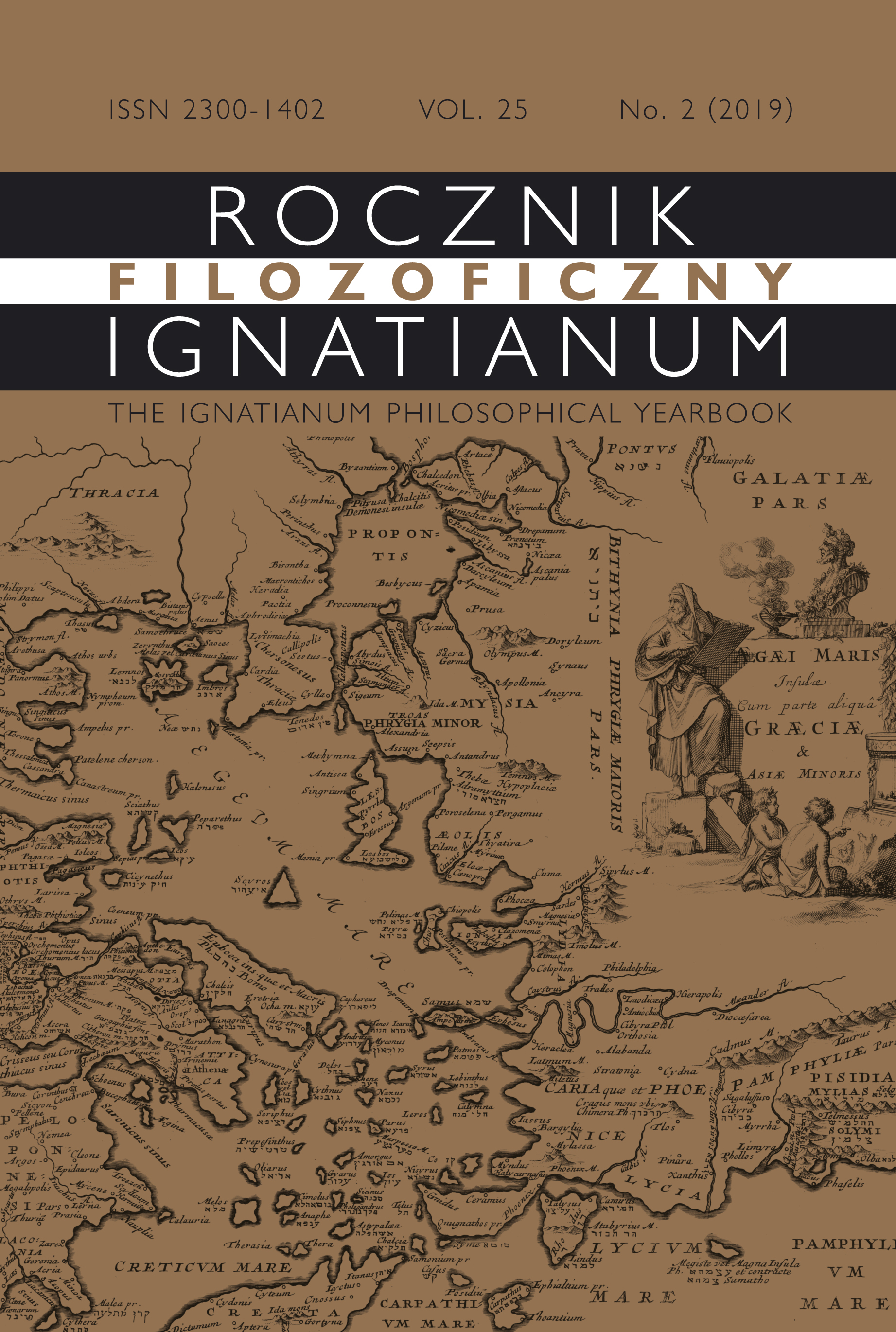Between Berlin and Rome
Bishop Georg Kopp and the End of Kulturkampf
Abstract
The aim of this article is to elucidate on the role of Georg Kopp, the Bishop of Fulda and later the Bishop of Wrocław, in ending the Kulturkampf, which was the conflict between the German government and the Holy See. The source material is drawn from the German Bishops’ Conferences files, the transcripts of the Sessions of the House of Lords of Prussia (the Upper Chamber of the Prussian Landtag) and the evaluation materials of Bishop Kopp by his contemporaries. The West German historians (e. g. Heinrich Bornkamm and Christian Weber) dealt with the subject of Kulturkampf after 1945. Also, Polish historians, including Jerzy Krasuski, discussed the issue in the light of its influence on the Polish territories. Despite Hans-Georg Aschoff’ biography, Bishop Kopp’s role in the Kulturkampf has not been sufficiently present, especially in Polish historiography. This article aims to fill that gap. General conclusions were formulated based on the source analysis and the literature on the subject.
At the end of the 1870s, Otto von Bismarck, the German Chancellor, decided to put an end to the conflict with the Church. The negotiations on lifting the anti-Church Kulturkampf legislation occurred through the diplomatic channels between the government in Berlin and the Roman Curia. In 1882, there was a conflict in the Prussian bishopric because Georg Kopp turned out to be a supporter of concessions to the government. After this experience, he became involved in the negotiations in Rome. In 1880, 1882 and 1883, the so-called “mitigating laws” were passed to end the Kulturkampf policy. After the third law had been passed, there was an impasse in the relations between Berlin and the Holy See, as a result of which both sides had to make concessions. Kopp continued his diplomatic mission without the knowledge of other bishops and politicians from the Centre Party. However, his attempt to negotiate in the House of Lords was unsuccessful. The initiative was then taken over by Otto von Bismarck and due to his efforts the so-called First Peace Act was passed in May 1886. Some bishops criticized Bishop Kopp for his involvement. Yet, under the pressure from the Pope, the Center Party supported the Bismarck project. Thanks to Kopp’s efforts, who took responsibility for the decisions unpopular in the Church circles, Bismarck managed to end up the Kulturkampf policy.
References
Akten der Fuldaer Bischofskonferenz, ed. Erwin Gatz, t. I–III, „Veröffentlichungen der Kommission für Zeitgeschichte” Reihe A: Quellen, t. 22, 27, 39 (Mainz: Matthias-Grünewald-Verlag, 1977–1985).
Stenographische Berichte über die Verhandlungen des preußsichen Herrenhauses der durch die Allerhöchste Verordnung vom 4. Jan. 1886 einberufenen beiden Häuser des Landtages der Monarchie, t. I (Berlin 1886).
Stenographische Berichte über die Verhandlungen des preußischen Herrenhauses der durch die Allerhöchste Verordnung vom 3. Jan. 1887 einberufenen beiden Häuser des Landtages der Monarchie, t. I (Berlin, 1887).
Aschoff Hans-Georg, Kirchenfürst im Kaiserreich – Georg Kardinal Kopp (Hildesheim: Bernward, 1987).
Bachem Karl, Vorgeschichte, Geschichte und Politik der Deutschen Zentrumspar tei. Zugleich ein Beitrag zur Geschichte der katholischen Bewegung sowie zur allgemeinen Geschichte der neueren und neuesten Deutschland, t. IV (Köln: Bachem, 1928).
Hüsgen Eduard, Ludwig Windthorst (Cöln: Bachem, 1907).
Krasuski Jerzy, Kulturkampf. Katolicyzm i liberalizm w Niemczech XIX w. (Poznań: Ossolineum, 1963).
Lill Rudolf, „Die Beilegung des Kulturkampfes in Preußen und im Deutschen Reich”, w Handbuch der Kirchengeschichte, red. Hubert Jedin, Bd. VI/2: Die Kirche zwischen Anpassung und Widerstand (1878 bis 1914) (Freiburg im Breisgau: Herder, 1973), 59–78.
Scholz Franz, „Georg Kardinal Kopp”, w Beiträge zur schlesischen Kirchengeschich te Gedenkschrift für Kurt Engelbert, red. Bernhard Stasiewski, Forschungen und Quellen zur Kirchen und Kulturgeschichte Ostdeutschlands, Bd. 6 (Köln: Böhlau, 1969), 511–529.
Weber Christoph, Kirchliche Politik zwischen Rom, Berlin und Trier. Die Beile gung des preußischen Kulturkampfes, Veröffentlichungen der Kommission für Zeitgeschichte. Reihe B.: Forschungen, Bd. 7 (Mainz Matthias-Grünewald-Verlag 1970).
Zieliński Zygmunt, „Kulturkampf ”, w Encyklopedia Katolicka, t. 10 (Lublin: TN KUL, 2004), 206–207.
Gottschalk Joseph, „Georg Kardinal Kopp (1887–1914) im Urteil seiner Zeitgenossen”, Archiv für schlesische Kirchengeschichte 43 (1985): 75–143.
Grudniewski Jakub, „Biskup wrocławski Georg Kopp a kwestia polska na Górnym Śląsku w opinii polskojęzycznej prasy górnośląskiej”, Wieki Stare i Nowe 4/9 (2012): 81–113.
Schnabel Franz, „Kardinal Kopps Bedeutung für den politischen Katholizismus in Deutschland”, Die Grenzboten 73/II (1914): 260–273.
Seppelt Franz Xaver, „Kardinal Georg Kopp, Fürstbischof von Breslau. Sein Leben und Wirken“, Zeitschrift des Vereins für Geschichte Schlesiens 50 (1916): 295–308.
Solski Tadeusz, „Działalność Georga Koppa biskupa Fuldy (1881–1887) na tle sytuacji Kościoła katolickiego w Rzeszy Niemieckiej”, Saeculum Christianum, 8/1 (2001): 127–139.
Copyright (c) 2021 Jesuit University Ignatianum in Krakow

This work is licensed under a Creative Commons Attribution-NoDerivatives 4.0 International License.
The Yearbook only accepts materials for publication that are free of all conflicts of interest, and that in no way involve conflicts over authorship, copyright, etc. The Editors will take action against any cases of plagiarizing, ghostwriting1, guest/honorary authorship2, etc. Where co-authored work is concerned, the Author listed first is expected to take responsibility for the submission, and is required to make clear the contributions of all of the Co-Authors involved. In the event of the publication owing its existence to funding dedicated to this purpose, this fact should be made clear: e.g. in any note of thanks/acknowledgement, or in a footnote, etc. Explicit notification should be given of any form of reprinting, with the appropriate evidence of permission to publish being furnished as required. Any impropriety on the part of Authors/Reviewers risks exposing them to appropriate responses from the relevant institutions.
______
1 This term refers to instances of a person who has made an essential contribution being omitted from the list of authors, or from notes conveying gratitude and/or acknowledgement.
2 This occurs when a person who has made either an insignificant contribution or no contribution at all nevertheless appears on the list of authors.





